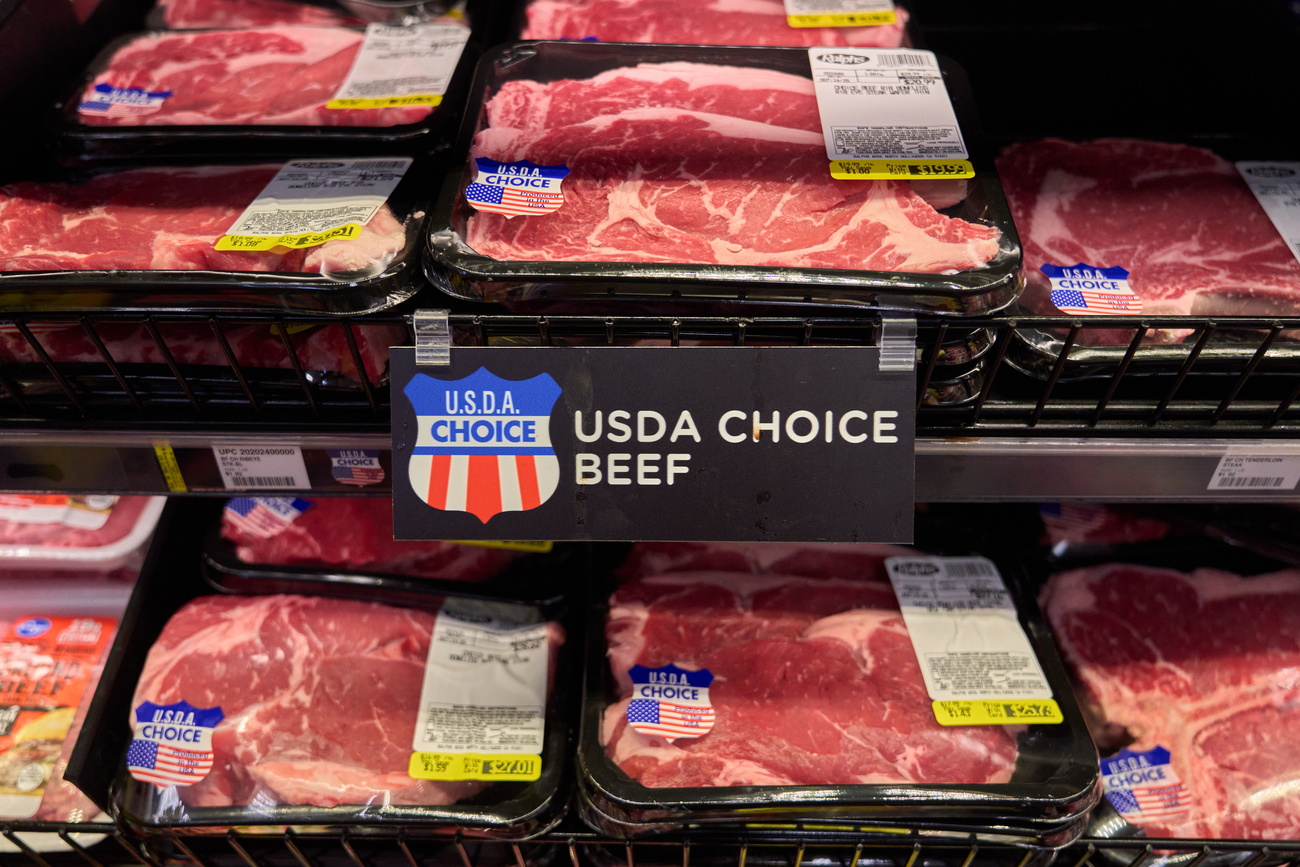
Swiss business takes on global waste
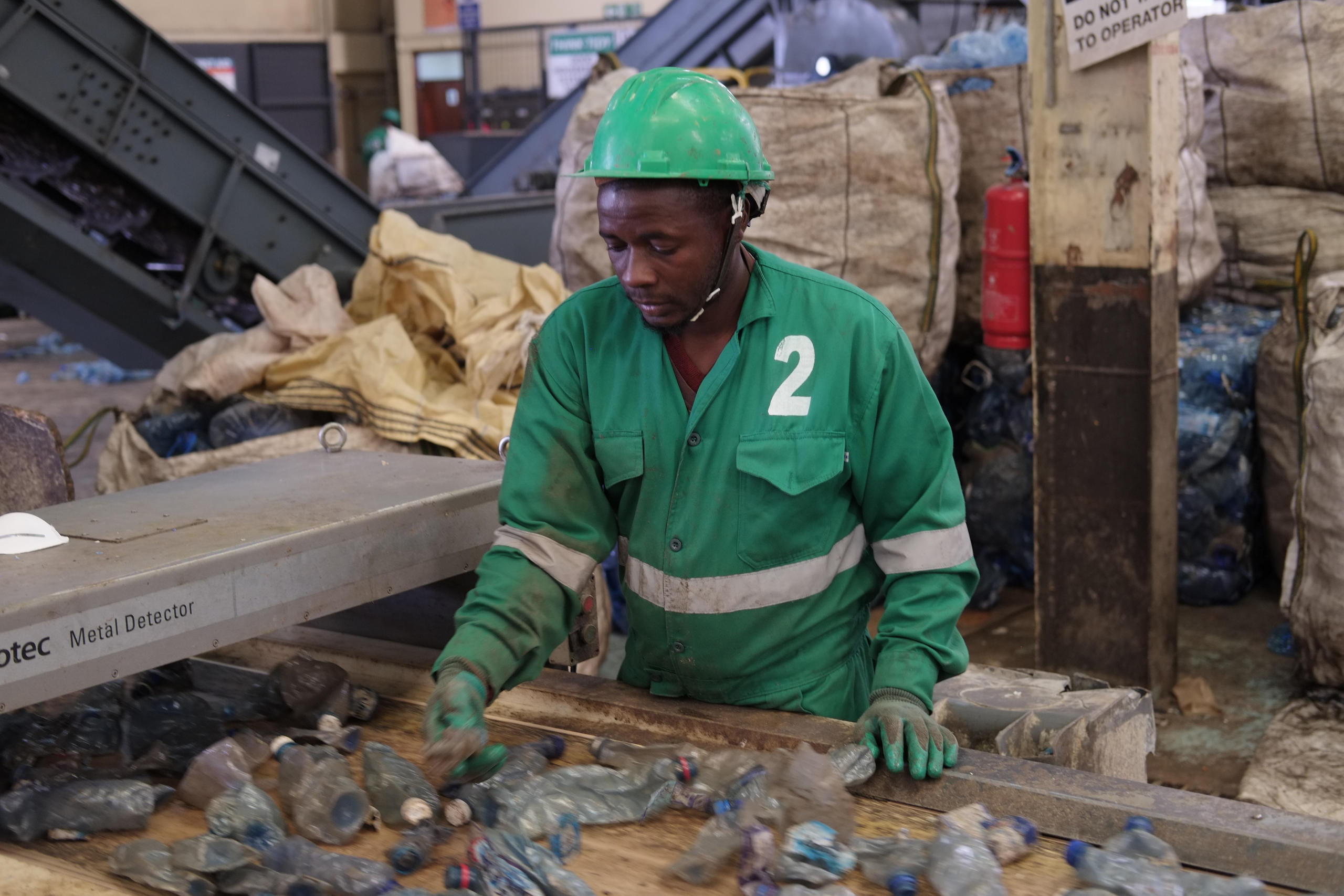
Mr. Green, a recycling subscription service with a social mission, has been a big hit with busy families and businesses in cities in Switzerland. But can it work in Africa?
Swiss entrepreneur Keiran Smith had no connection with Kenya before starting Mr. Green Africa. It all started more than a decade ago when four business school students in a shared house in Zurich tried to find a solution for their recycling woes: “That’s often the way it is – none of us wanted to dump the empty bottles and cans,” says Smith.
Today, in Kenya’s capital Nairobi, trucks unload several tons of plastic waste everyday at the premises of Mr. Green Africa. In the factory building situated in an industrial area not far from the international airport, the waste is sorted by hand according to type and colour. Then some noisy machines chop it up, wash it and dry it. Finally the recycled material is put into enormous sacks, which are sold by the company to local manufacturers, who make things like water tanks out of them.

“Here in Nairobi we are building up one of the first really local recycling economies in the world”, says Smith, the 33-year-old CEO of Mr. Green Africa, in his open-plan office beside the factory building.
“We are certainly the first in East Africa to take plastic that has been collected and recycled locally, and feed it back into the local market instead of exporting it, which is what usually happens.”
A new machine will soon be producing top-quality pellets, which can be used by major manufacturers of consumer goods in Kenya like Unilever or Coca Cola to make quality containers and packaging.
Student idea
The original business idea for Mr. GreenExternal link, founded by the four students in 2010, was a “recycling subscription” for households and businesses in Zurich, Winterthur, Bern and Basel. In much of Switzerland, consumers are responsible for sorting their plastic, glass and aluminum recycling and bringing it to a specific collection point.
The company quickly grew to about 7,000 customers who put their recyclable waste in a sack that is picked up at least once a month by Mr. Green staff. “That is how I learned that waste has a value”, recalls Smith

Is this just a luxury service for lazy people who can afford the CHF17.90 ($18.30) per month? Smith says no: “first of all, Mr. Green recycles material which would otherwise go to the landfill – like drink cartons, corks or plastic bags.” Secondly, Mr. Green also has a social purpose: most of the collecting and sorting is done by people with disabilities or who have had a difficult upbringing.
From Zurich to Nairobi
Mr. Green wasn’t developed with Africa in mind but after it started to turn a profit in Switzerland, Smith was looking for a new challenge. “I wanted to show that our business model would work in a frontier market too: our idea is to solve ecological and social problems, and be profitable at the same time.”
In 2012 Smith had the idea to check out Nairobi from a Kenyan living in Switzerland. He came into contact with Karim Debabe, who had been travelling to Africa for years on behalf of his then employer and was also interested to start a business. Smith and Debabe eventually set up Mr. Green Africa together in 2016.
Nairobi is a huge city with no public waste management system. Separating waste items in the slum of Dandora (where the city’s main dump is found) is a dangerous business involving criminal gangs. The city was a far cry from Switzerland and a big risk.
“The challenges are bigger here than in Zurich for sure, but so are the opportunities”, says Smith. “The waste management market here is so big that we are not really competing with anyone; at the same time we are having a lot of impact on the ecological and social front.”
The ecological impact of plastic waste is immediately apparent when driving from the factory to one of the collection points. Plastic bags are officially banned, but many other plastic items lie in piles on the side of the road and along the banks of the Nairobi River.

The social mission
Upon arriving at the collection point, we encounter the social component of the business. Dandora has one of 25 “Trading Points” currently operating around the city. There are no signs or smells of the notorious dump site of the slum. The collection point, run by a Mr. Green employee, looks like a little shop. About forty men and women regularly bring in discarded plastic waste here – there are more than a thousand of them in the city as a whole. Once or twice a week, a truck takes the recycling material from the trading point and unloads it at the Mr. Green Africa factory.
For every kilogram they collect, the collectors – who are called “suppliers” at Mr. Green – receive around CHF0.20. They can earn extra rewards through a point system – such as having protective clothing, health insurance, or training. Every few weeks, a tent is put up beside the trading point, where plastic suppliers can get a free medical examination. This is financed by Mr. Green customers in Switzerland.
Model for the global waste problem
In their large, light and airy office space, Smith and Debabe are planning the future of Mr. Green Africa. They want to be able to turn around a profit so they can invest further in the company.
They are working to improve the quality of the processed plastic and also double the quantity to about 250 tonnes a month. They also want to operate ten new collection points in Nairobi by the end of the year and provide a regular income to 2,000 rubbish collectors as well as become more aware of their contribution to society, as Smith puts it.
“Our goal is to create a model that can be transferred to developing countries worldwide”, says Smith. “The global waste problem is so big that it needs plenty of ‘Mr. Greens’.” There are a lot more interested investors in contrast to when the company first started. At that time, topics like waste management and recycling were practically unheard of.
The learning curve has been steep for the company. “But contrary to the cliché, we have had nothing but a positive experience in Kenya”, says Smith. “On the other hand, we have been cheated twice by suppliers and consultants in Switzerland.”
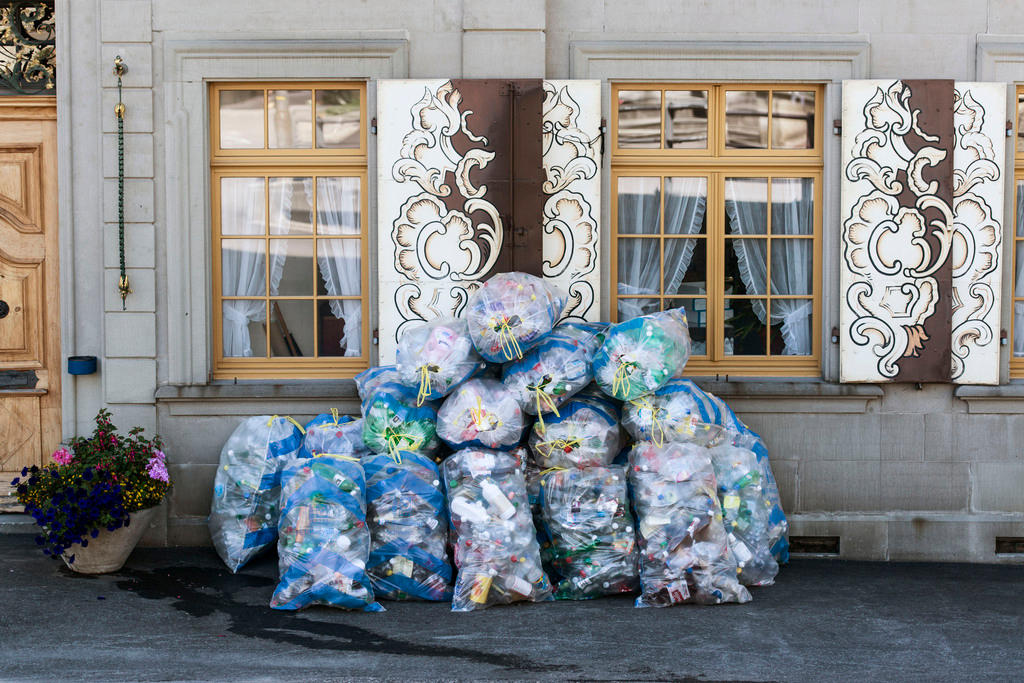
More
Is Switzerland the world champion of recycling?
Adapted from German by Terence MacNamee

In compliance with the JTI standards
More: SWI swissinfo.ch certified by the Journalism Trust Initiative
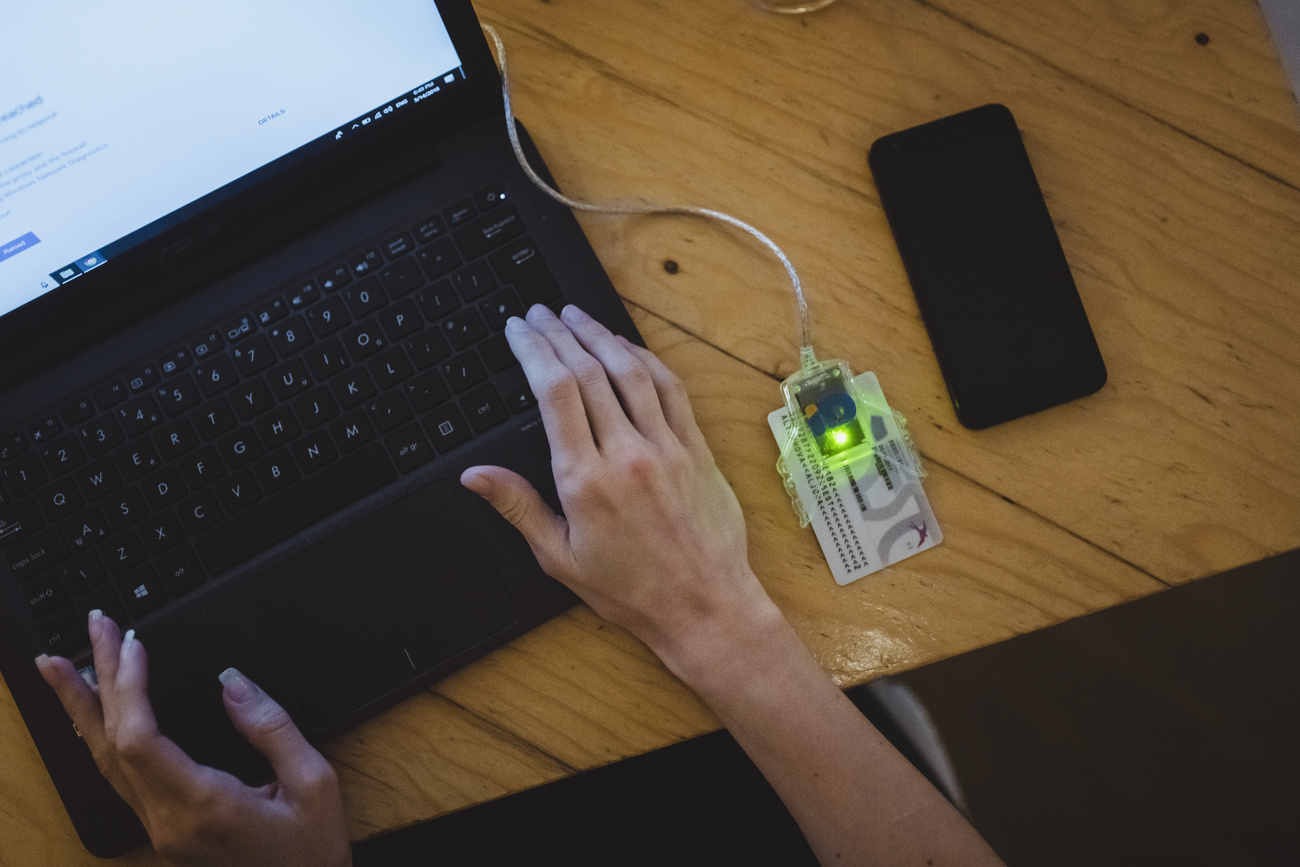








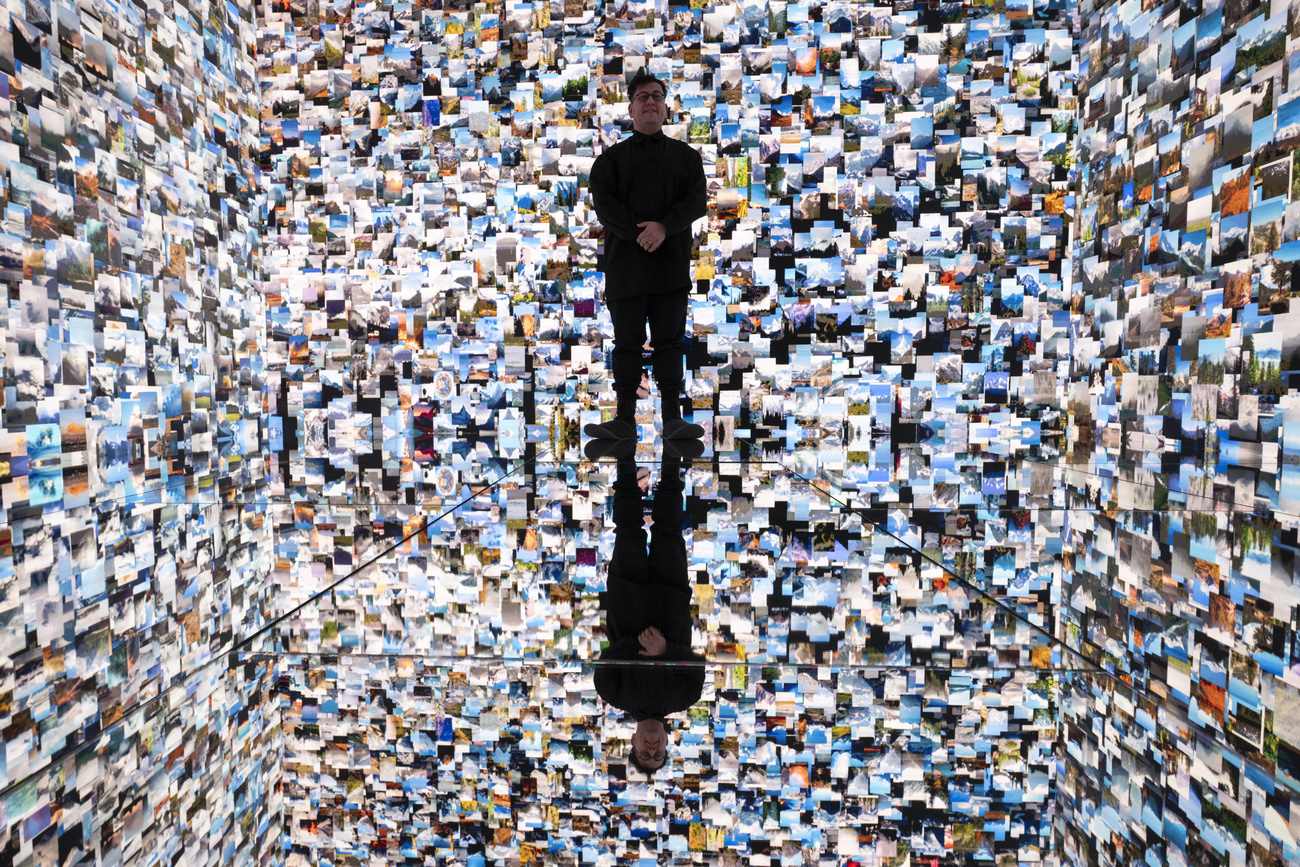




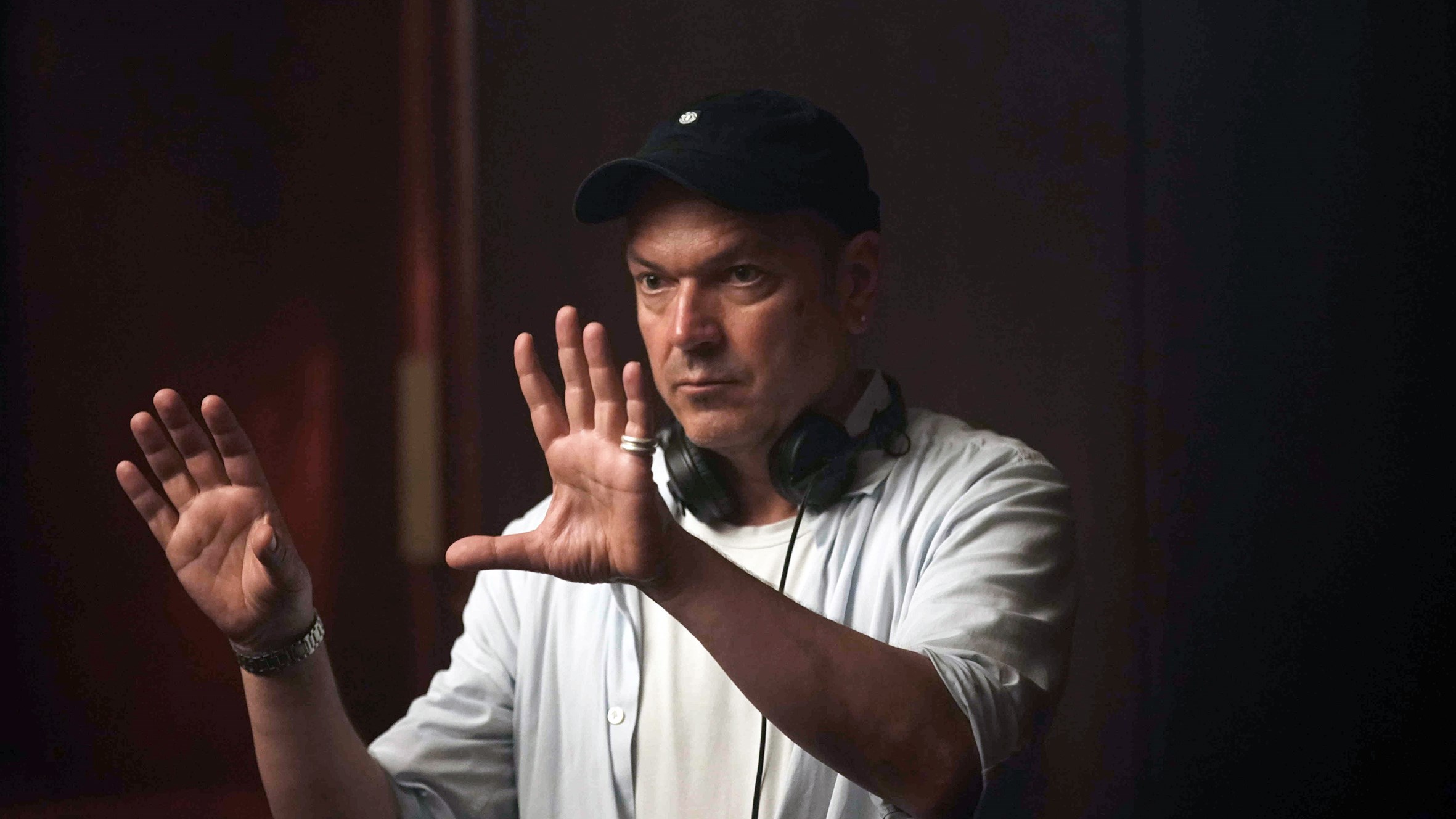




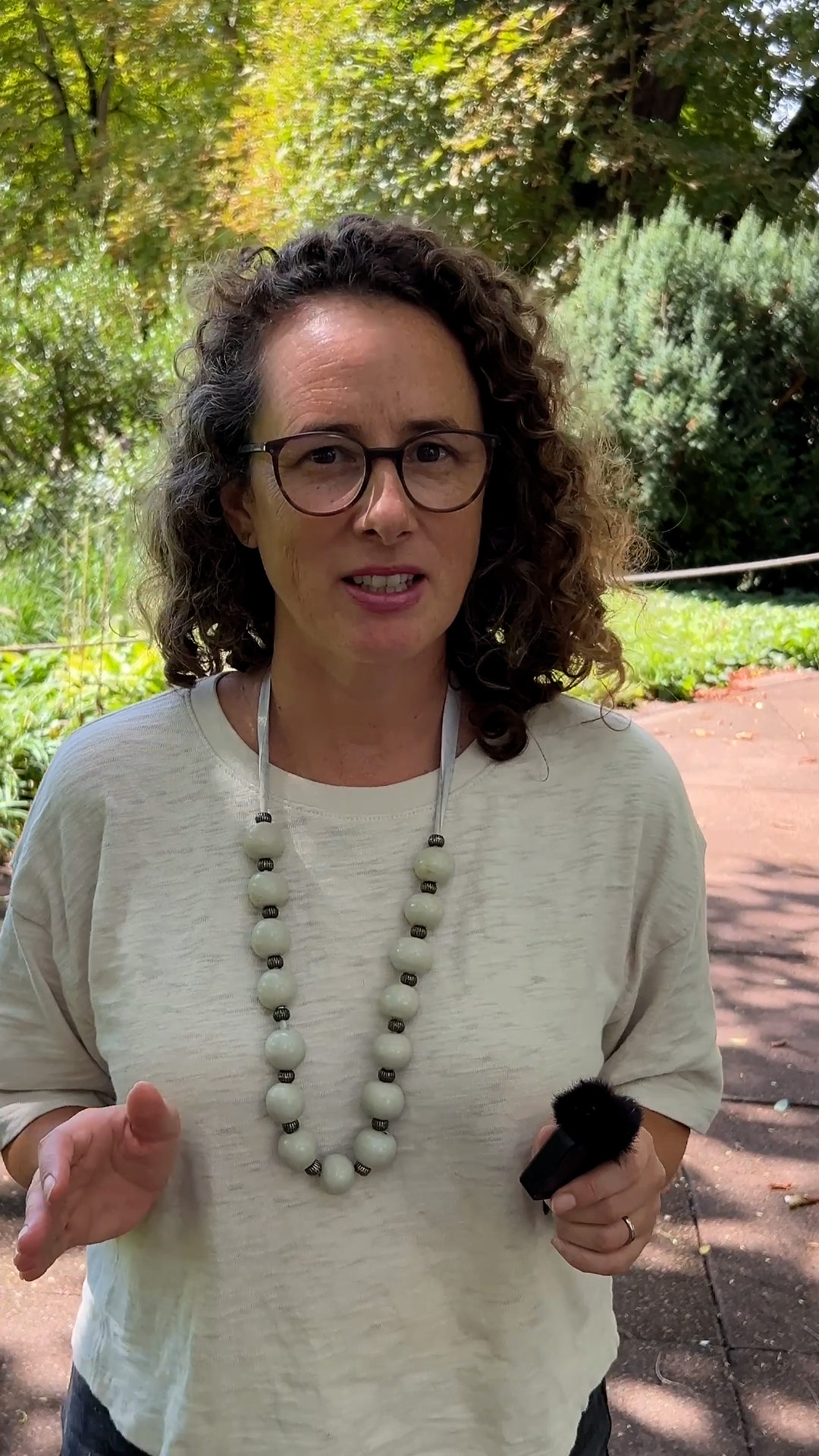




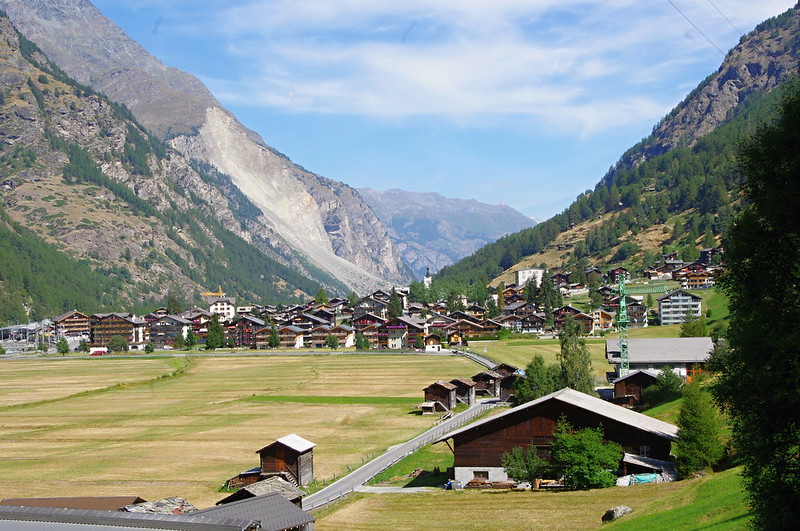
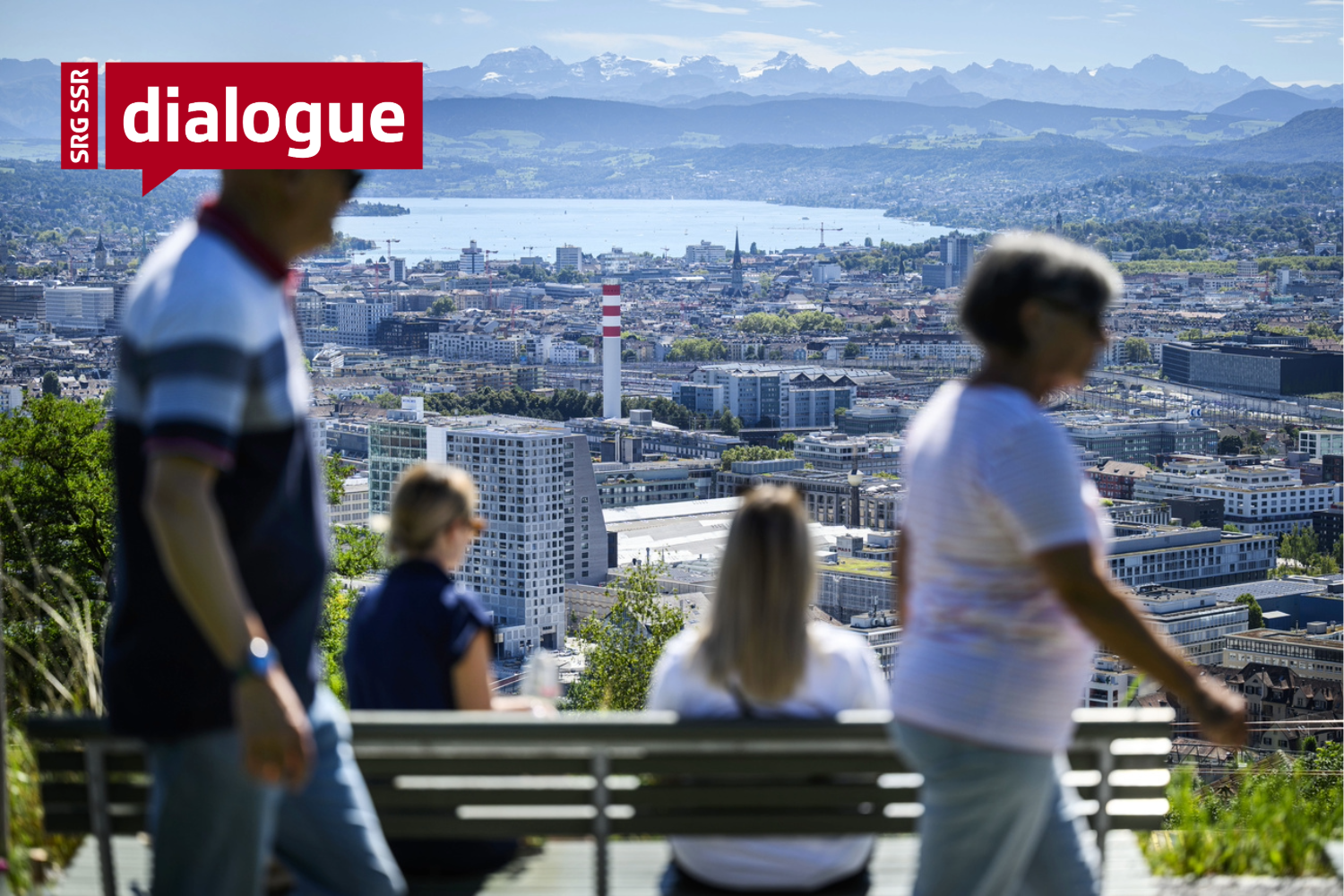













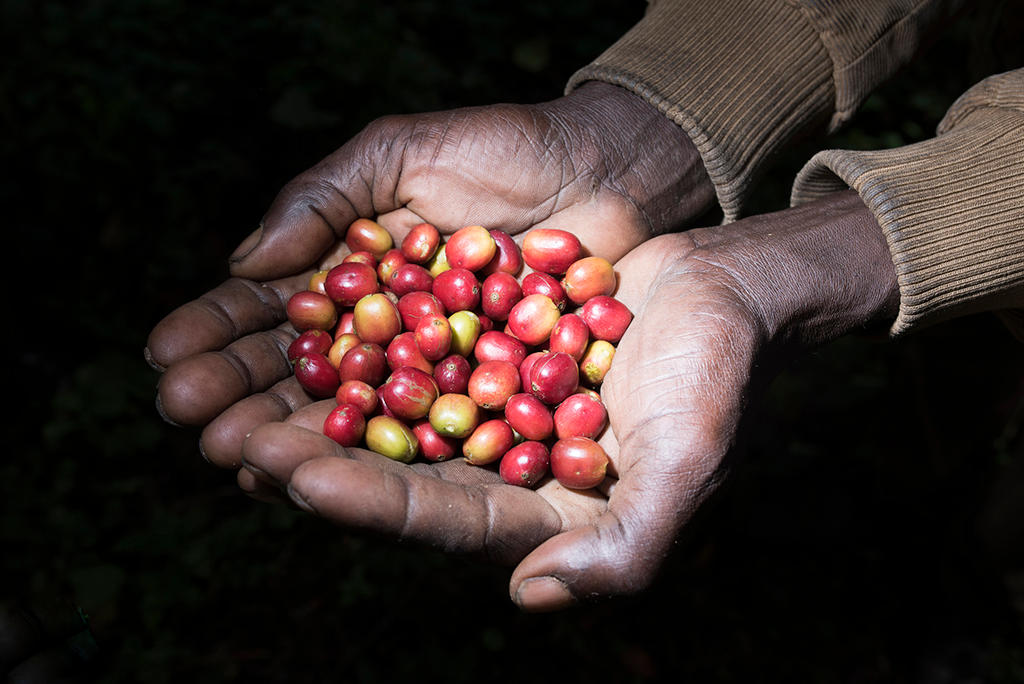
You can find an overview of ongoing debates with our journalists here . Please join us!
If you want to start a conversation about a topic raised in this article or want to report factual errors, email us at english@swissinfo.ch.